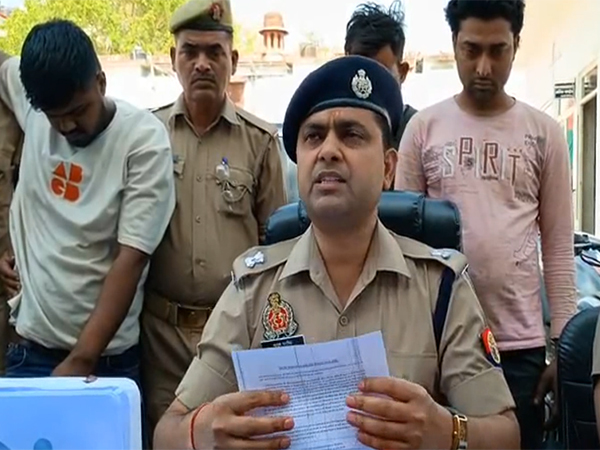Will Thailand's lifting of pre-arrival COVID test attract more Indian tourists?
Mar 21, 2022

By Lee Kah Whye
Singapore, March 21 : Last week, Thailand's Centre for COVID-19 Situation Administration (CCSA) approved the lifting of the pre-travel testing requirement for international arrivals beginning April 1, 2022.
This will reduce the testing requirement for visitors to the kingdom to just an on-arrival PCR (polymerase chain reaction) test and a self-administered ART (antigen rapid test) on day five.
This is a significant development since many travel experts have argued that excessive testing, and the associated cost and inconvenience, is discouraging many people from travelling.
Pre-COVID, Thailand was a very popular destination for Indians as it offered beautiful pristine beaches, nature reserves, rustic countryside and hillside towns, fascinating cities with stunning temples, delicious food, exciting nightlife and high-quality accommodation, all at very affordable prices.
According to the Tourism Authority of Thailand (TAT), citing a survey by British travel group, Thomas Cook, Thailand was among the top three most desired destinations among Indians. The other two are the UAE (Dubai and Abu Dhabi) and Maldives.
Based on Thailand's Ministry of Tourism and Sports data, almost 2 million Indians visited Thailand in 2019 making them the third-largest group of foreign nationals to visit the "land of smiles" that year. Just a year before, in 2018, Indians made up the sixth-largest group of foreign visitors. It is a massive jump from 2008 when 537,000 visited and Indian arrivals was ranked 11th.
The tourism industry in Thailand accounts for about a fifth of its GDP and since borders closed due to the COVID-19 pandemic, about 20 to 25 per cent of Thais have been put in financial peril. A United Nations report titled "COVID-19 and Tourism", said Thailand could stand to lose USD 47 billion due to the contraction of this sector.
Many in the tourism sector have been lobbying the Thai government to reopen the country to visitors as quickly as safely possible.
Thailand has two vaccinated quarantine-free travel schemes. The "Test & Go" scheme and the "Sandbox Programme". The main difference is that no on-arrival testing is required for visitors entering under the Sandbox Programme.
However, Sandbox Programme visitors can only enter Thailand through Chon Buri, Krabi, Phangnga, Phuket, Surat Thani and Trat and must stay at an approved hotel in those areas. Currently, they must stay at their port of entry for seven days after arrival before being free to travel to any part of Thailand. Effective April 1, with the implementation of the new policy, they only need to stay at their port of entry for five days.
The new policy also increases the approved arrival airports from seven to eight, adding HatYai airport to the existing Don Mueang, Suvarnabhumi, Phuket, Krabi, Samui, Chiang Mai, and U-Tapao.
Both Test & Go and Sandbox visitors have to register for a Thailand Pass at least seven days before arrival (the Pass takes three to seven days to process), buy travel insurance with a minimum coverage of USD 20,000 and book at least a one day stay at an approved hotel (seven days for Sandbox visitors, reduced to five from April 1). Test & Go visitors must isolate in their hotel until the PCR test results are known.
With the more relaxed entry requirements, airlines are ramping up flights between the two countries.
On March 15, IndiGo airlines said it will start to operate Thailand flights under the air bubble agreement till March 26 and thereafter the flights will be part of its scheduled commercial operations. This will be the first commercial flights by IndiGo to Thailand since March 2020 when the COVID-19 pandemic first broke out.
It will operate flights connecting Phuket with Delhi and Mumbai and Bangkok with Delhi, Mumbai, Kolkata, Chennai and Bengaluru.
Thai Airway, Thailand's flag carrier had on March 1 announced the resumption of flights between the two countries starting with flights under the air bubble transport agreement. Flights will connect Bangkok with four Indian cities - Delhi, Mumbai, Chennai and Bengaluru.
Earlier, in February in response to the news of an air travel bubble arrangement between India and Thailand, the Tourism Authority of Thailand (TAT) outlined a marketing strategy to recover one of Thailand's important visitor source markets.
In line with the "Visit Thailand Year 2022: Amazing New Chapters" marketing campaign, TAT intends to focus on re-building the Indian market with a particular emphasis on special interest groups with high spending. These include weddings and honeymoons, golf, millennials, and digital nomads. Among the activities are familiarisation trips for travel agents and wedding planners, and business events.
TAT will also head up the Thailand presence at India's largest tourism promotion event - South Asia Travel and Tourism Exchange (SATTE) 2022 - scheduled for May 18-20 in New Delhi.
Thailand hopes to attract at least 500,000 Indian visitors during the current fiscal year, which will end in September.
Tanes Petsuwan, TAT Deputy Governor for International Marketing - Asia and the South Pacific, said, "Thailand was a very popular destination for Indian travellers before the COVID-19 pandemic, and there is every indication this appeal will continue."



















